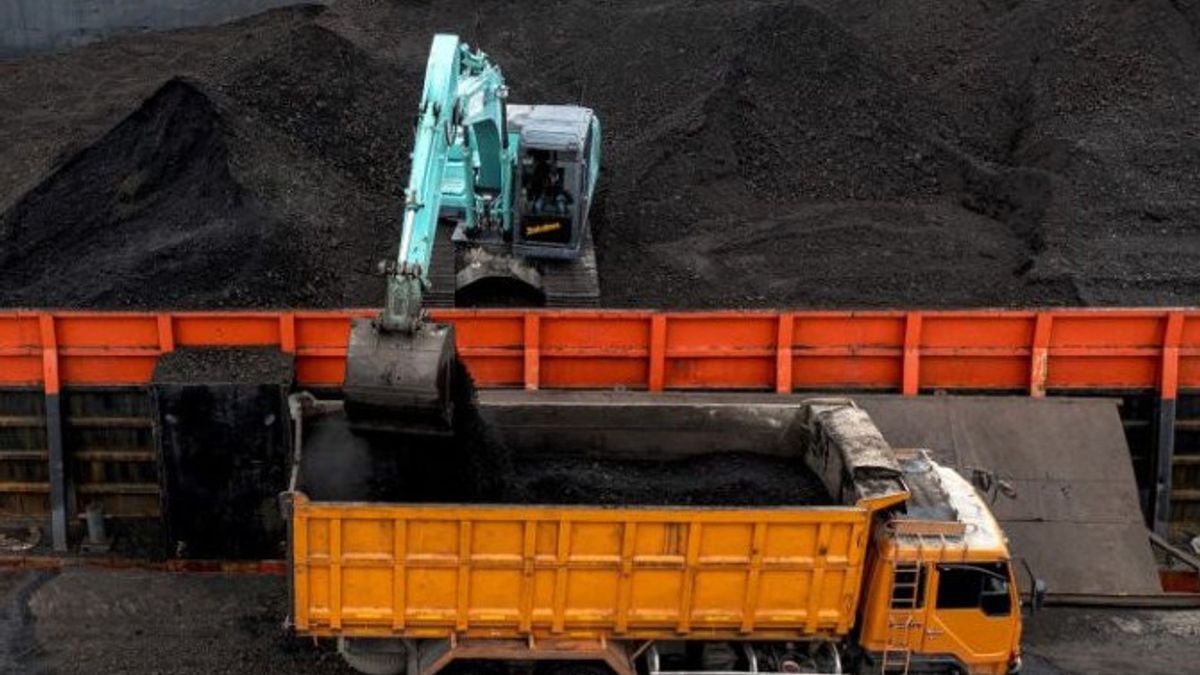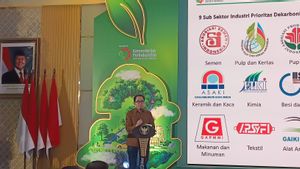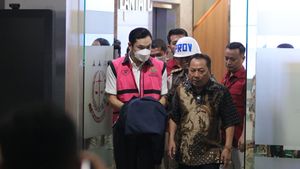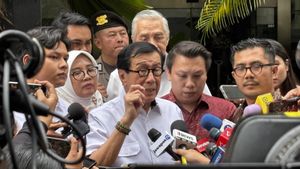JAKARTA - Hostile take over is a conventional mode that is practiced by many mining mafias. How does it work?
One way the mining mafia works is an attempt to forcefully take the company that owns the legal Mining Business Permit (IUP) by using a legal process that looks legal through the agreements made.
In the notes of the Chairman of Indonesia Police Watch (IPW), Sugeng Teguh Santoso, the crime model called the hostile take-over is a conventional mode that is often carried out by mining mafia actors with the aim of taking over the company legally for a long time.
This method also occurred in the case of the feud between PT Asia Pacific Mining Resources (APMR), the majority shareholder of nickel company PT Citra Lampia Mandiri (CLM) and PT Aserra Mineralindo Investama (AMI) d/h PT. Aserra Sejahtera Investama (AMI).
In this case, the process of forced takeover of CLM was preceded by a legal process in the form of a Conditional Sale and Purchase Agreement (PJBB) worth 28.5 million US dollars which was just paid 2 million US dollars by the Aserra group, then continued with legal battles both through the GMS and the general court, and ended with forced execution in the field with the help of the police.
"So with a capital of less than 10 percent, AMI wants to take over CLM which has a legal IUP without any intention to pay the remaining 26.5 million US dollars or almost half a trillion rupiah," said Sugeng, in his statement, Friday, December 23.
PJBB CLM Deteken Ketika Holding AMI Pailit
Explaining the background of the APMR Group dispute with the Aserra Group which has been running for 4 years, Thomas Azali, APMR Director and one of the CLM shareholders revealed that AMI still does not appear to have the intention of paying off their 26.5 million US dollars in underpayment, even though it has been given an extension time in 2019.
"But when we wanted to step down to find another buyer, they didn't accept it. So with a down payment of USD 2 million, we were hanged for life," he said.
Later, Thomas et al learned from various reports that at that time PT Apexindo Duta Pratama Tbk (APEX), holding Aserra Group, was experiencing serious financial problems until it was almost bankrupted by its creditors.
"This means that when they signed the PJBB, they actually had no money, but still insisted because they wanted to annex our company. It could be that from the start they did not intend to invest in CLM but wanted to illegally control APMR shares with a legal process that seemed legal," he added.
Emmanuel Valentinus Domen (Manuel), Director of APMR, the majority shareholder of CLM, then revealed a number of news related to APEX's bankruptcy in the 2018-2019 period. Among other things, as published in investors.id where Apexindo had undergone a PKPU trial on March 26, 2019 at the Central Jakarta District Court, although the majority of creditors later accepted the peace proposal offered by APEX on May 13, 2019.
Bisnis.com on May 15, 2019 also reported that based on the PKPU verification stage at that time, APEX had a total debt of IDR 5.81 trillion spread across 335 creditors. These debts arise from the company's activities in running its business.
When the PKPU was proposed by one of the creditors on March 8, 2018, APEX President Director Zainal Abidinsyah Siregar stated that the company he leads is not in the best condition because oil prices have fallen since 2016. Furthermore, cnbciIndonesia.com on July 1, 2019 explained that the oil and gas mining issuer was fined and suspended by the IDX for not depositing the 2018 Financial Report.
Launching APEX's financial report as of September 30, 2018, APEX's financial performance condition was recorded to have a negative equity book value of US$81.66 million. For the issue of the APMR vs Aserra Group dispute, Sugeng is of the opinion that law enforcement does have a political will, the legal issue between CLM and AMI is actually not a complicated problem.
According to him, the authorities only need to assess the status of PJBB worth 28.5 million US dollars which has just been paid in the amount of 2 million US dollars.
"That's a simple problem, there is a debt of 26.5 US dollars that has not been paid yet," he said.
Criminalization and Participation of the Police
Another thing that is noted by IPW in various mining mafia cases in Indonesia is the side of the police. When the police side with one of the parties, according to him, there is a tendency for the opposing party to be'rebated' with a criminal law mechanism or what is commonly called criminalization.
This also happened to Thomas et al from the APMR Group. Thomas emphasized that the problem between CLM and AMI, which had been running for 4 years, was purely a civil problem but then Zainal Abidinsyah et al tried to criminalize Thomas et al, with various accusations being sought.
In addition to occurring on the board of directors of CLM and APMR, IPW explained that a similar case also occurred in the coal company PT Rantau Utama Bhakti Sumatra (RUBS) which is still rolling today. This case concerns Hanifah Husein, the wife of the former Minister of Agrarian and Spatial Planning/Head of the late BPN Ferry Mursyidan Baldan.
According to Sugeng, as an investor who provided capital loans for the management of mining companies, Hanifah and two other RUBS officials were reported and made suspects on charges of stock embezzlement, while the money did not return.
"This is an example of criminalization that occurs. Mining mafias use force and sell influence (trading influence) of people who have affiliations with the authorities. People involved in disputes usually embrace people who have legal, power and even politics authority," he concluded.
The English, Chinese, Japanese, Arabic, and French versions are automatically generated by the AI. So there may still be inaccuracies in translating, please always see Indonesian as our main language. (system supported by DigitalSiber.id)













